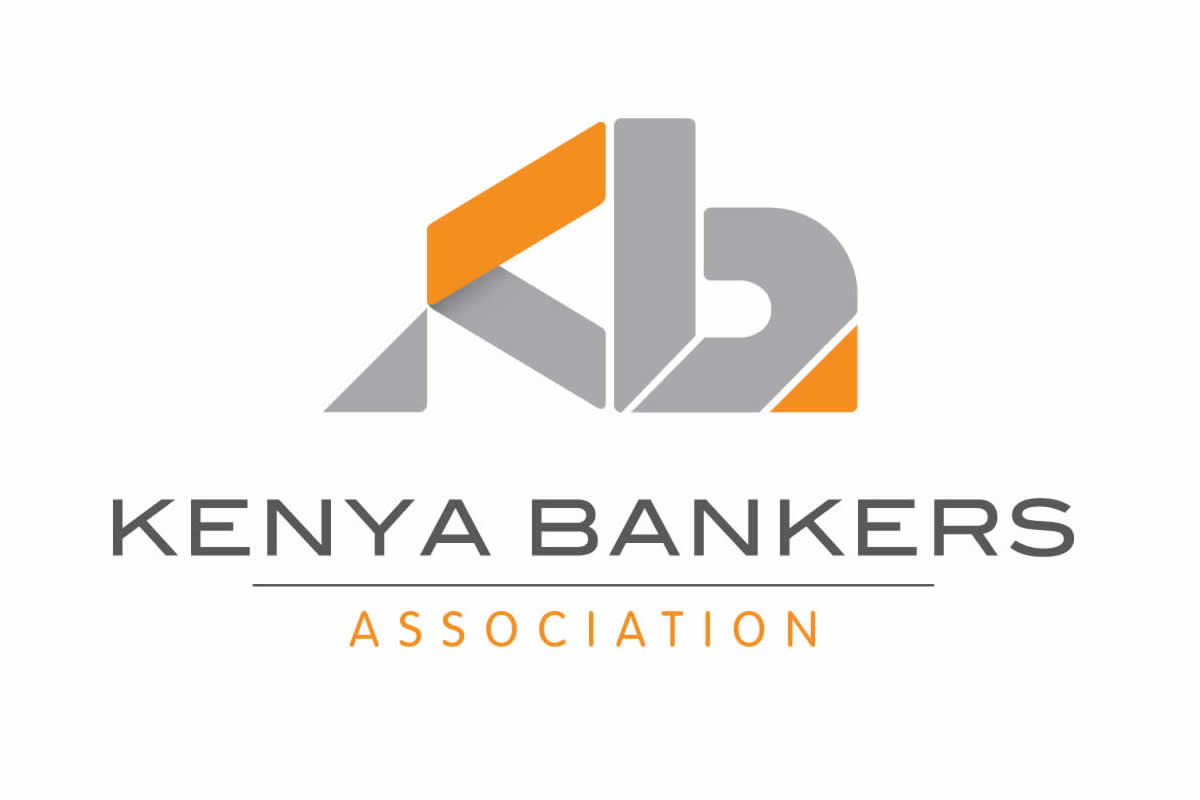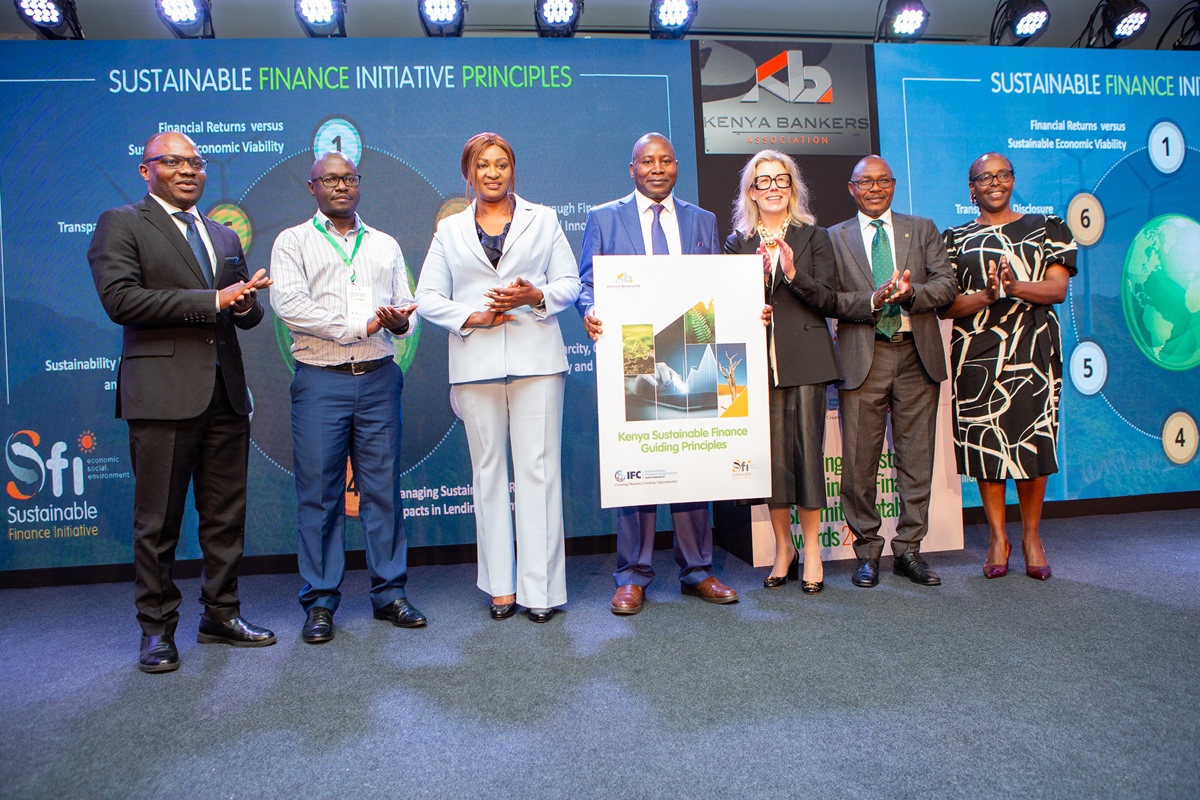Nairobi, November 9th 2017 – Kenya Bankers Association (KBA), the umbrella body of the banking industry today announced the finalists of the 2017 Sustainable Finance Catalyst Awards. This year’s theme is “Recognizing Catalytic Finance that Impacts Industry, Economy and Society”.
The Awards were created to recognize exceptional institutions that practice sustainable finance which has a direct positive impact on the financial sector, the economy, the environment and the society at large. This year, 14 firms have been shortlisted to showcase their progressive stance in integrating sustainability practices in their respective institutions.
The Sustainable Finance Initiative (SFI), upon which the Awards are based, are clustered into two categories that embody the industry’s adopted SFI Guiding Principles. In order to deepen bank staff understanding of the Principles, KBA, with the support of its partners, has successfully trained over 23 thousand bank staff through an industry-wide e-learning course.
The Principles require financial institutions to balance their quest for financial returns with the economy’s future priorities and social-environmental concerns. Dr. Habil Olaka, the KBA Chief Executive Officer (CEO), said achieving the Sustainable Development Goals (SDGs) is a vital global undertaking in which financial institutions have a role to play.
“Globally, financial institutions are increasingly taking a leading role in ensuring their businesses are run sustainably, be it in fighting corruption, limiting the firm’s impact on climate or even advancing workplace inclusion,” said Dr. Olaka.
“Kenyan firms are also doing a lot too, through financing sustainable development projects or adopting internal strategies to run their businesses well. That is why we launched the Catalyst Awards; to celebrate companies that, while staying true to their core profitability cause, have not lost sight of doing what is right.”
KBA sponsors the Catalyst Awards annually to honour Financial Institutions, including banks, that have demonstrated their leadership in implementing the aforementioned Principles. The shortlisted firms are: Barclays Bank of Kenya; Commercial Bank of Africa; Co-operative Bank of Kenya; Diamond Trust Bank; Equity Bank; KCB Group; Kenya Women Microfinance Bank (KWFT); Lenderbal Inc; National Bank; NIC Bank; Prime Bank; Standard Chartered Bank; Safaricom and Stanbic Bank.
Businesses will be appraised on whether they have covered the essential indicators which included the impact to the Gross Domestic Product (GDP), the growth of the business, job creation and support of minority groups including women and the youth.
To assess the entries, an independent panel of judges has been constituted. This year’s judges are: Mr. Tumurkhu Davaakhuu, the Vice President of the Mongolian Bankers Association (MBA); Engineer Dan Likuyi Ndenga, co-founder of energy advisory firm Miltec Engineering Limited; and Mr. Edward Mungai, the Chief Executive Officer of the Kenya Climate Innovation Center (KCIC); Dr. Peter Muriu, a Financial and Monetary Economics lecturer at the University of Nairobi; Ms. Rosemary Mutunkei, a Corporate Sustainability and Social Investment practitioner; and Ms. Anne Macharia, a Senior Compliance and Enforcement Officer at the National Environment Management Authority (NEMA).
The Award categories include:
Category 1:
– Best Practice in Sustainable Finance
– Sustainability Through Policy & Governance
Category 2:
– Client Case Study – Financing Micro, Small & Medium-Sized Companies
– Client Case Study – Financing Commercial Clients
– Bank Case Study – Bank Operations & Policy
Special Category:
– Best Overall Award
Notes to the editor
About The Sustainable Finance Guiding Principles & Industry Standards
The Kenya banking industry in March 2015 adopted the Sustainable Finance Initiative (SFI) Guiding Principles that guide the banks in balancing their business goals with the economy’s development priorities and socio-environmental concerns. The SFI Principles that were officially launched by the Central Bank of Kenya Governor Dr. Patrick Njoroge on 1st December 2015 are grounded in three main priorities, namely equipping the financial services sector to perform optimally in the area of comprehensive risk management; enhancing business practice, leadership and governance; and promoting industry growth and development by fostering a culture of innovation and inclusivity enabled by new technology. The Principles draw from and harmonize several global best practice standards, including the Equator Principles, IFC Performance Standards, Nigerian Sustainable Banking Principles, African Development Bank (AfDB) Green Growth Policy, Global Reporting Initiative (GRI) Reporting Guidelines, UNEP Finance Initiative (UNEP-FI) Guidelines, UN Global Compact Principles, ISO 26000:2010, and Kenya’s National Climate Change Policy (draft).
About Kenya Bankers Association
Founded on 16th July 1962, KBA has evolved and broadened its function to include advocacy on behalf of the banking industry, and championing financial sector development through strategic projects. KBA has undertaken major industrywide initiatives, including aligning standards on payments; promoting pricing transparency through the introduction of the Annual Percentage Rate framework (costofcredit.co.ke); and the modernization of the National Payments System through the Automated Clearing House, which KBA owns and operates. In line with the Government’s policy on public-private partnerships, the Association and CBK have implemented key milestone projects such as the Real Time Gross Settlement System (RTGS), and the Kenya Credit Information Sharing Initiative, which introduced the use of information collateral provided by credit reference bureaus to enhance credit access for borrowers.


